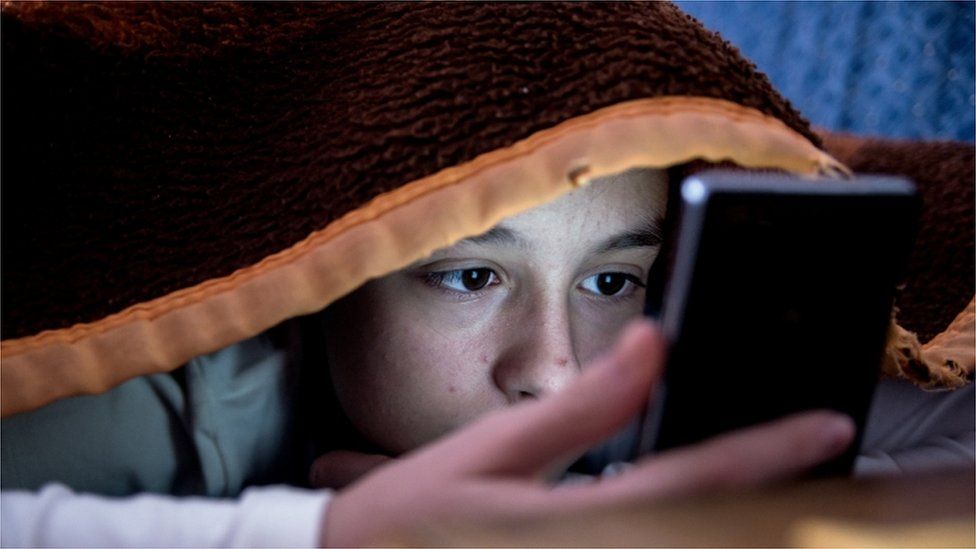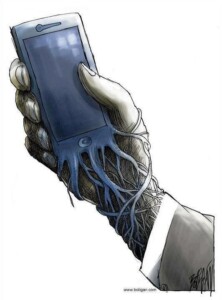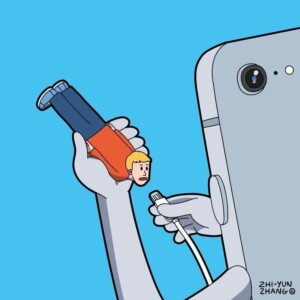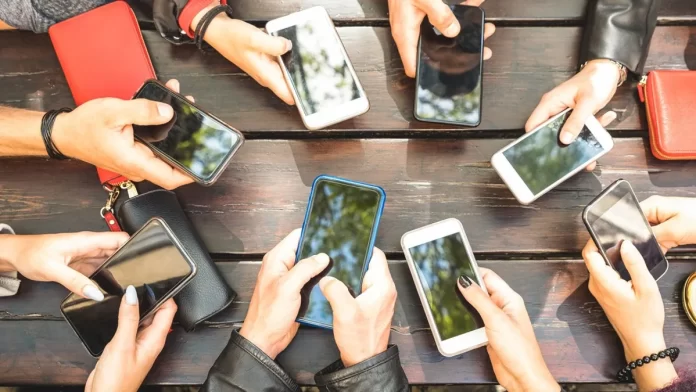Srinagar: Insha (name changed), 21, used to spend a lot of time on her cellphone, without having an idea of how adverse effects it was going to have on her mental health. It was five years ago when she bought a cellphone, where she would constantly spend her time chatting with her friends, switching to different social media apps and likewise exposing herself to more screen time.
“It was an enjoyment for me. I was addicted to my phone, but it affected my studies, my grades and eventually my mental peace,” said Insha.
She told The Indus Post that she had to deal with sudden panic attacks, and she would cry oftentimes to calm herself.

“Moreover, it impacted my behavior towards my family members. I was not able to spend time with my family and I would prefer spending time alone.” she said.
Research suggests that the prevalence of mobile phone addiction varies from 2.4% to as high as 60.3% among adolescents and school-going children globally.
Another research published in International Journal of Indian Psychology in 2018 found out the mobile phone addiction is high among Kashmiri male students and moderate in Kashmiri female students.
It said that the results are showing the indications that today’s youth population or student community is passing through the chaos, disturbance and mental incapacitation.
Doctors in Kashmir also say how aggression and behavioral issues are prominent among children and youth who often come with symptoms like memory problems, disturbed sleep cycles.

Experts feel that this has led to development of Nomophobia or No Mobile Phone Phobia, a psychological condition when people have a fear of being detached from mobile phone connectivity.
During Covid19 pandemic, mobile phones played a critical role for children and youth in online classes. Kashmiri students also had to rely on smartphones and internet connectivity. As the pandemic pushed everyone to keep themselves inside homes, experts say, it also became a reason for addiction among youth and children.
Dr. Wasim Kakroo, Clinical Psychologist at Centre for Mental Health Services Rambagh Srinagar said, the average screen time for children is 2 hours a day, but during Covid19 lockdown they had to attend all classes online, making them addicted to phones.
He said, “Screens are mostly addictive for those children and teenagers who suffer emotionally and don’t get enough attention from their parents or their loved ones. They find it as the only means of recreation.”

According to a study titled “Increase in Screen Time for Children in COVID Times and its effects” carried out by the department of Social and Preventive Medicine Government Medical College Srinagar, ‘Approximately 62.9% parents consider their children addicted to the phones.’
The study was published in the Journal of Integrative Medicine and Public Health in May 2022. It said, ‘Approximately 94.5% parents consider that increased screen-time affected the physical health of the children, 94.1% parents consider that the increased screen-time affected the mental health of children. 61.6% parents considered that the increased screen-time decreased the academic ability of children.’
Dr. Kakroo said mobile phone addiction like any other addiction can be destructive and takes the meaning out of life where an addict seeks pleasure at the cost of everything in life. “When an addict is deprived of this addiction they face withdrawal symptoms like low mood, irritability and feel cranky. They fight over petty issues,” he further added.

The increased mobile phone addiction is worrying parents and teachers in Kashmir as well. “Kids used to have online classes throughout the day, and we would not take away their phones. They kept using phones more for other activities and little for studies. They became lazy and cranky and would not listen if we stopped them, their temperament changed completely,” said Syed Nighat, a parent.
Rafiq Ahmed, a teacher, repeats the same ordeal. “Mobile phone addiction has affected studies of children as they are not able to concentrate on studies. I frequently caught students using phones in classes too. He said that earlier students used to participate in outdoor games but now they prefer to play video games.”
Dr. Kakroo suggests that after students are done with their online studies it is the responsibility of parents to give them a break and include them in other activities. Dealing with addictions is never easy and, Dr. Kakroo believes, parents should deal with it patiently.

“Lecturing children or subjecting them to mental abuse won’t help, unfortunately this is what most of the parents and teachers do. You need to rehabilitate them like any other addiction. Parents need to understand their mental condition and be empathetic towards them, listen to them and plan a proper day structure for them,” Dr. Kakroo said.
He further adds, “To get away with addiction, childrens’ day routine must include attractive and recreational alternatives: reading, painting and outdoor games.”
He says parents must engage with their children and give them proper attention which needs consistency and patience.
Mobile phone addiction has clutched the young generation and they are finding it difficult to come out of it. The process of rehabilitation is long and tiring but there is a hope.
“I witnessed some changes in me after I started reading books in my free time. I tried spending more time doing other casual activities to divert myself,” said Insha.
















